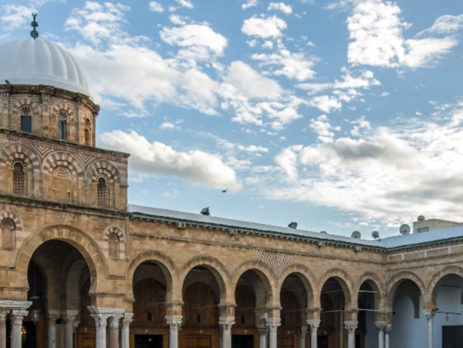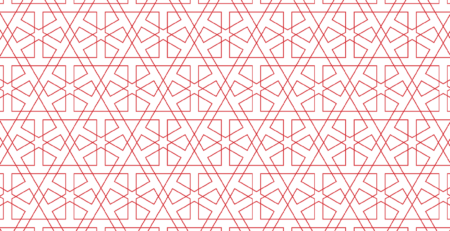Lessons Learned from the Experiences of Dialogue and Collaborative Work between Islamist and Secularists in Tunisia
Author : Salahedine Jourchi
Translated from Arabic by: John Steinhardt
The general framework
In cooperation with the Religion, Politics and Conflict desk of the Swiss Federal Department of Foreign Affairs and the Al-Jahedh Forum, the Cordoba Foundation of Geneva organized three workshops in Tunisia on the problematic interface between religion and politics, and the possibility of establishing a dialogue between Islamists and Secularists, especially Leftists. The aim was to facilitate the creation of political conditions supportive of the transition to democracy, while eschewing all forms of political violence.
The aim was to support Tunisia at this difficult juncture, the free world having welcomed the Tunisian revolution, which ran a civilized and peaceful course. In the delicate and theorny process of transition from tyranny to democracy, Tunisians have endured seven years of difficult and complex challenges, including doctrinal and ideological differences and contradictions.
The urgent need to persist with efforts to extricate Tunisia from her current predicament was thrown into sharp relief by successes on more than one level. Three elections – to the National Constituent Assembly, the Parliament and the Presidency of the Republic – had been conducted in a calm atmosphere of personal commitment. Those successes in turn facilitated the successful formation of coalition governments in the immediate wake of the revolution: first the Troika, then the so-called national unity government ushered in by the Nidaa Tounes (big-tent) party.
From the outset, the organizers strove to invite politicians, activists, youth and researchers to participate in these various workshops, with an eye to the diversity of views and experiences. These meetings brought together a broad array of Islamists and leftists, including those from the radical left-wing Popular Front, as well as liberals, socialists, nationalists, trade unionists, and constitutionalists from within Nidaa Tounes and elsewhere. The desired aim was to promote peaceful coexistence between political actors with different ideological backgrounds, with the aim of supporting the democratic transition and social cohesion from impacts that could demolish the entire edifice, dragging Tunisians back to the days of arbitrary despotism.
The controversy over the role of religion in Tunisian society re-surfaced after the emergence of the Islamic trend movement (Mouvement de la Tendance Islamique) as a political actor (now named Ennahdha, literally the Renaissance Movement). When this movement began, its ideology was influenced by the Muslim Brotherhood movement, and so its discourse drew no line between religion and state, or between Islam and politics. However, the revolution ushered in marked changes to the public sphere, and Ennahdha’s position on several political issues significantly evolved. This stirred up doubts about the problematic relationship between religion and politics: had a decisive historical balance genuinely been struck in Tunisia, or had we to date seen no more than delaying tactics, and the pursuit of material gains?
Are the indicators robust enough to suggest that the transitional process in Tunisia will not be affected by persistent ideological differences on the issue of religion vs. state?
Did Ennahdha reach a final decision on the question of political Islam: did it opt consciously and irreversibly to defend democracy and uphold the civil state?
Could the overall situation be affected by the other elements within the arena of political Islam, such as Hizbut-Tahrir, or the Salafi circles, in all their varied configurations?
Is it possible to overcome the differences between the Islamists and the various secular parties, including the Tunisian left and the Popular Front?
Is it possible to attenuate the Islamic/secular dispute in Tunisia in terms of the relationship between religion and politics without negative repercussions for the position of the two parties on social isues?
This is the framework within which the three dialogues were held between the two parties.
The first workshop was organized on 3 March 2017 and was entitled “Religion and Politics in the Tunisian Context”. The aim of this workshop was to situate the problem in its evolving local historical context, and thereby lay bare the deep roots of the dispute.
The second workshop was held on 19 May and was devoted to the evaluation of two important experiences that had a direct bearing on the relationship between Islamists and Secularists. The first, known as the 18 October initiative, occurred before the revolution, in the era of President Ben Ali. The second concerned the Troika government following the elections for the National Constituent Assembly.
The third workshop on 23 September 2017 focused on the alliance between Nidaa Tounes and Ennahda, an alliance that at the time of writing continues to hold up, and became known as the National Unity Government after the removal of Prime Minister Habib Essid (following a vote of no-confidence) and the appointment in his stead of Youssef Al-Shahed.
These experiences of dialogue yield cumulative benefits, including numerous lessons that serve to explain the Tunisian context, through analysis of the constituent elements of power, and the failures of the current post-revolutionary political situation. The following notes highlight the findings captured by the three workshops.








